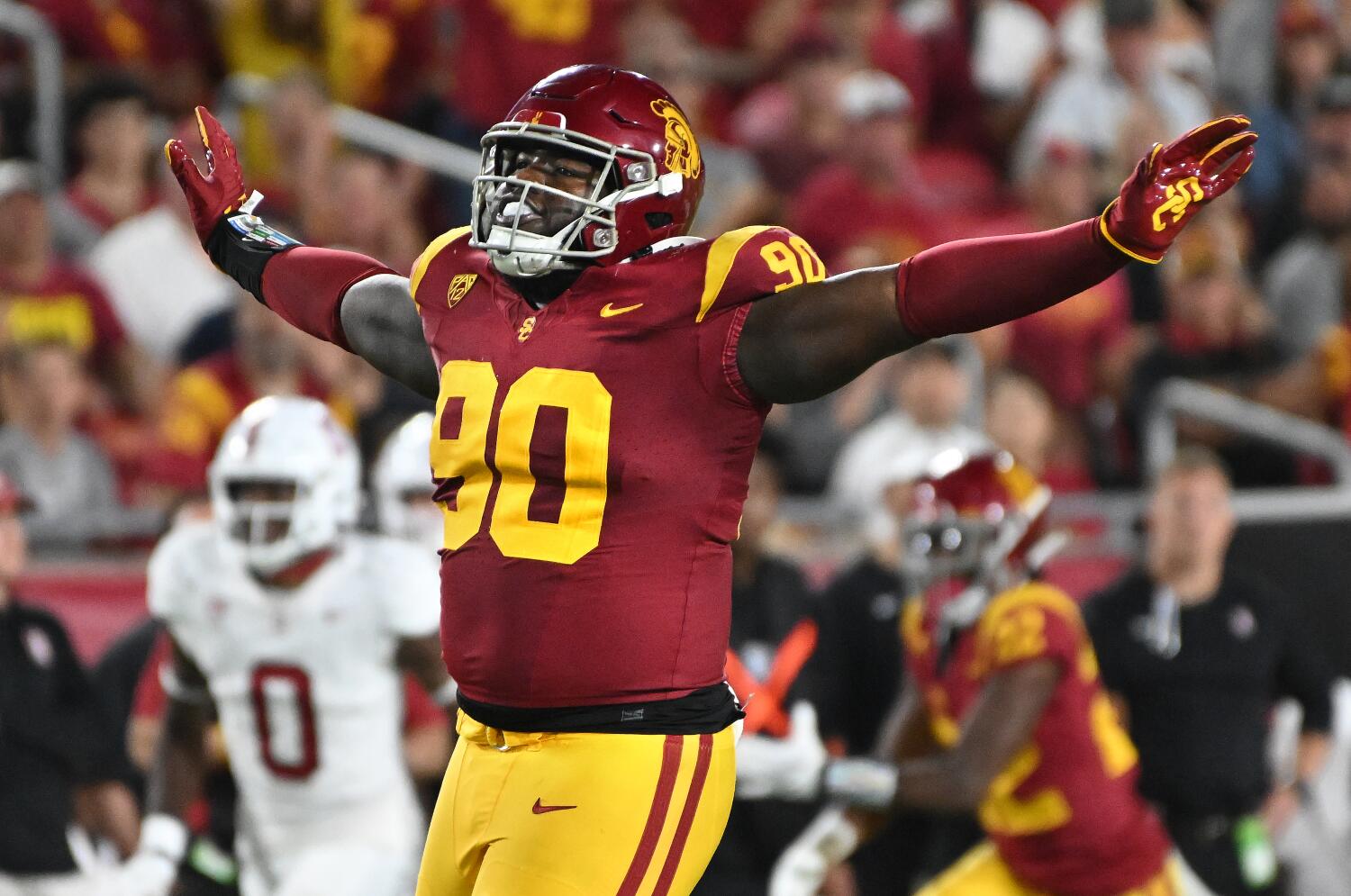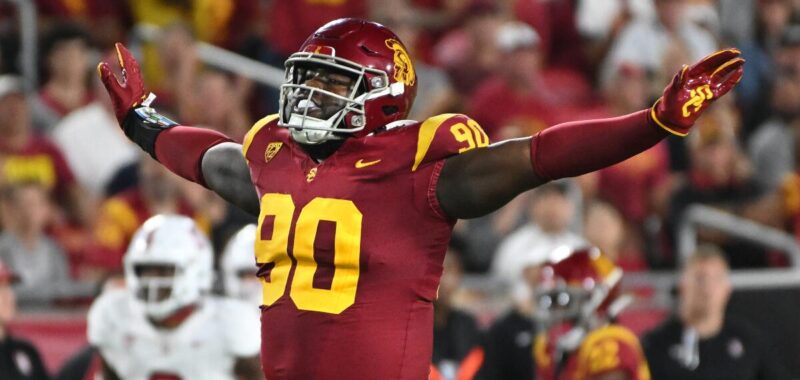
Their paths crossed for just a single season at the NFL level, two young defensive coaches at the bottom of the Chargers’ 2017 staff, their whole careers still ahead of them.
D’Anton Lynn was a defensive assistant, having followed his father, Anthony, from Buffalo to L.A. Eric Henderson was an assistant defensive line coach, still finding his way in his first NFL job. The two coaches formed a quick bond, spending late nights together grinding tape or doing whatever work the more senior staffers demanded of them.
“We laughed, we talked, we stayed up a lot of long hours,” Henderson said. “We grew together.”
To each of them, it was obvious even then that the other would go onto great things. Lynn felt the pride and passion Henderson carried with every task he took on, no matter how small. And Henderson could sense Lynn’s grasp on the finer points of defense was far beyond that of your standard 27-year-old starting his coaching career.
They talked then about where their careers might take them or how their fledgling philosophies would look fully formed. Neither had any idea then that seven years later, their bond would serve as the basis of a new, rebuilt defense at USC, where Lincoln Riley has put his faith in the co-defensive coordinators to bring a frustrating unit back from the brink.
The path back, as Lynn saw it, started with bringing his old friend on board.
“When I got the opportunity to come here,” Lynn said, “he was the very first person I called.”
Henderson has been a revelation since, both on the practice field and on the recruiting trail. One of the most respected assistants in the NFL for his role in coaching future Hall of Famer Aaron Donald, Henderson played a critical role in keeping game-wrecking defensive tackle Bear Alexander in the fold at USC last spring. And in the short time since his hire, his #DAWGWORK slogan has given USC’s defense a tougher mentality to cling to, one far removed from the reputation it earned the past two years under former defensive coordinator Alex Grinch.
Lynn sought out other coaches who, like Henderson, would take a similar ownership in the scheme, willing to offer up their own ideas about how a defense should operate. He wasn’t the type to stick to one static scheme. He wanted as much information and as many perspectives from his staff as possible to determine what might fit their personnel.
“I want this to be everyone’s scheme,” Lynn said, “not just mine.”
So he hired two coaches who’d built schemes of their own before. Matt Entz had been a defensive coordinator or head coach — primarily at FCS power North Dakota State — since 2012, the year Lynn was drafted, while Doug Belk had served as Houston’s defensive coordinator for the past five seasons. Lynn and Riley convinced both to come to USC as mere assistants, coaching linebackers and defensive backs.
Lynn had just one year under his belt as a defensive coordinator at UCLA. But that single season at the helm, which saw UCLA go from 90th in scoring offense to 14th, had been a launching pad for new ideas he wanted to pursue. As the season ended, Lynn already had a laundry list of changes he hoped to implement.
By February, though, he was sketching out an entirely new vision with a new staff at a new school. He laid out to his assistants at USC the core defensive principles he’d installed to great success at UCLA, an amalgamation of ideas he’d picked up in stops with the Baltimore Ravens, New York Jets and Houston Texans before that. Then, the conversation started.
The specific details of the scheme born out of those conversations isn’t yet clear, one month out from USC’s opener against LSU. What was obvious, coming out of USC’s media day on Wednesday, was that players can see that vision for themselves. That alone is an important distinction from last year’s defense, which over-complicated its way into becoming one of the 12 worst teams in the nation in points allowed.
“I think there’s a little more intention behind everything we do now,” senior defensive end Jamil Muhammad said.
It was no coincidence then that in the final days before preseason camp, photos of USC players’ impressive physical transformations, along with the weight they gained and the body fat percentage they lost, were posted all over social media. Or that one screen in the weight room was dedicated, all summer, to reminding players of the average weights of each position group in the Big Ten.
Of all the directives from USC’s defensive staff this summer, bulking up was the most critical. Not only for the conference change, but also to fit in Lynn’s preferred scheme.
“The Big Ten is just a bigger, more physical conference,” Lynn said. “Going into that conference, you naturally had to do that. Then with the different scheme on top of that, we require guys to be bigger inside.”
And not just size for the sake of it either.
“As soon as all of our feet got in L.A., we sat down with Coach Wylie,” Entz said. “What does a defense need to look like going into the 2024 season, going into the Big Ten, going into a very competitive, challenging schedule? We needed to make sure we were bigger, but we also needed to make sure it was functional at the same time. Bigger is just big.”
The size difference was certainly apparent as players took their seats around Bashor Lounge on Wednesday for USC media day. Wideout Zachariah Branch, whose current body fat percentage was recorded below 5%, looked primed to burst out of his jersey as he spoke to reporters. Elijah Hughes lamented how, now 33 pounds heavier than when he arrived on campus, he no longer fit in any of his normal clothes.
But below the new muscles and added mass Wednesday was something perhaps more important, a newfound sense of confidence in the building that maybe, just maybe, this new plan on defense might just be working.
That, Henderson says, is the whole point.
“There’s confidence now because they’ve seen themselves get better,” Henderson said. “Any time you can present a vision, and then you see the vision come to life, you naturally gain confidence from that.
“That’s where the buy-in comes.”

